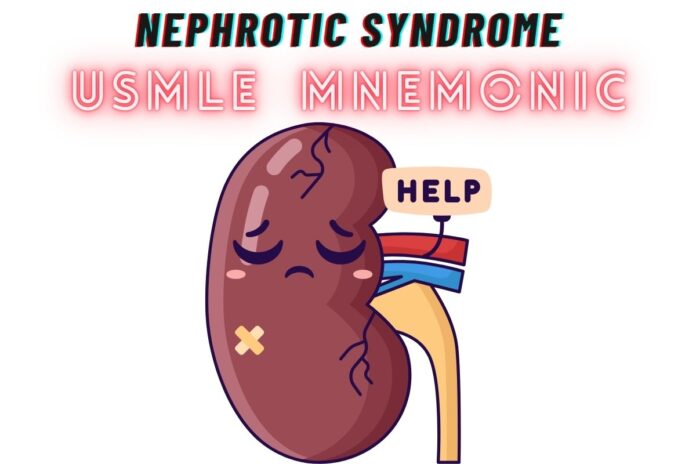
Nephrotic syndrome: the classic triad of massive proteinuria, hypoalbuminemia, and edema — basically your kidneys throwing a protein party, but forgetting to keep guests in the house. 🏠💧
When it comes to causes, the differential is broad, but for those high-yield exam questions and ward consults, I rely on a neat little mnemonic to keep my brain tidy:

MCD — because who doesn’t love a minimal effort trick with maximal returns?
Nephrotic Syndrome Causes Mnemonic – MCD
| Letter | Cause | Key Features |
|---|---|---|
| M | Minimal Change Disease | Most common in kids; responds well to steroids; podocyte effacement on EM |
| C | Collapsing FSGS | Aggressive variant of focal segmental glomerulosclerosis; associated with HIV & APOL1 variants |
| D | Diabetic Nephropathy | Leading cause of nephrotic syndrome worldwide; Kimmelstiel-Wilson nodules on biopsy |

🏥 Clinical Reflections from Quetta
During my time at Sheikh Khalifa Bin Zayed Hospital, I’ve seen plenty of edema cases, but the subtle clues make the difference. One middle-aged gentleman with longstanding diabetes presented with classic nephrotic features and was quickly pegged for diabetic nephropathy by his HbA1c and history.
Contrast that with a 7-year-old child with sudden onset puffiness and normal labs otherwise — minimal change disease jumped to the top of my list, and steroids worked their magic like a charm. ✨
🔍 Why “MCD” Works
- Minimal Change Disease dominates in children, and knowing its steroid responsiveness can save precious time and unnecessary investigations.
- Collapsing FSGS is your warning sign — rapid progression and poor prognosis mean you don’t want to miss it.
- Diabetic nephropathy is the giant lurking in adults with metabolic risk factors.
📚 Exam Tips
- Remember: Nephrotic syndrome = “protein loss party” but the cause changes your guest list and the aftermath.
- MCD mnemonic is a great quick recall tool for USMLE and clinical practice.
- Look out for systemic clues: HIV for collapsing FSGS, diabetes for diabetic nephropathy, kids with abrupt onset edema for minimal change.
Happy learning, folks! 🙂
📚 Written by:
Dr. Aurangzaib Qambrani
MBBS, PLAB, MRCP-UK
General Medicine, Gastroenterology & Cardiac Care Unit
Sheikh Khalifa Bin Zayed Hospital, Quetta
Discover more from Bibliobazar Digi Books
Subscribe to get the latest posts sent to your email.




